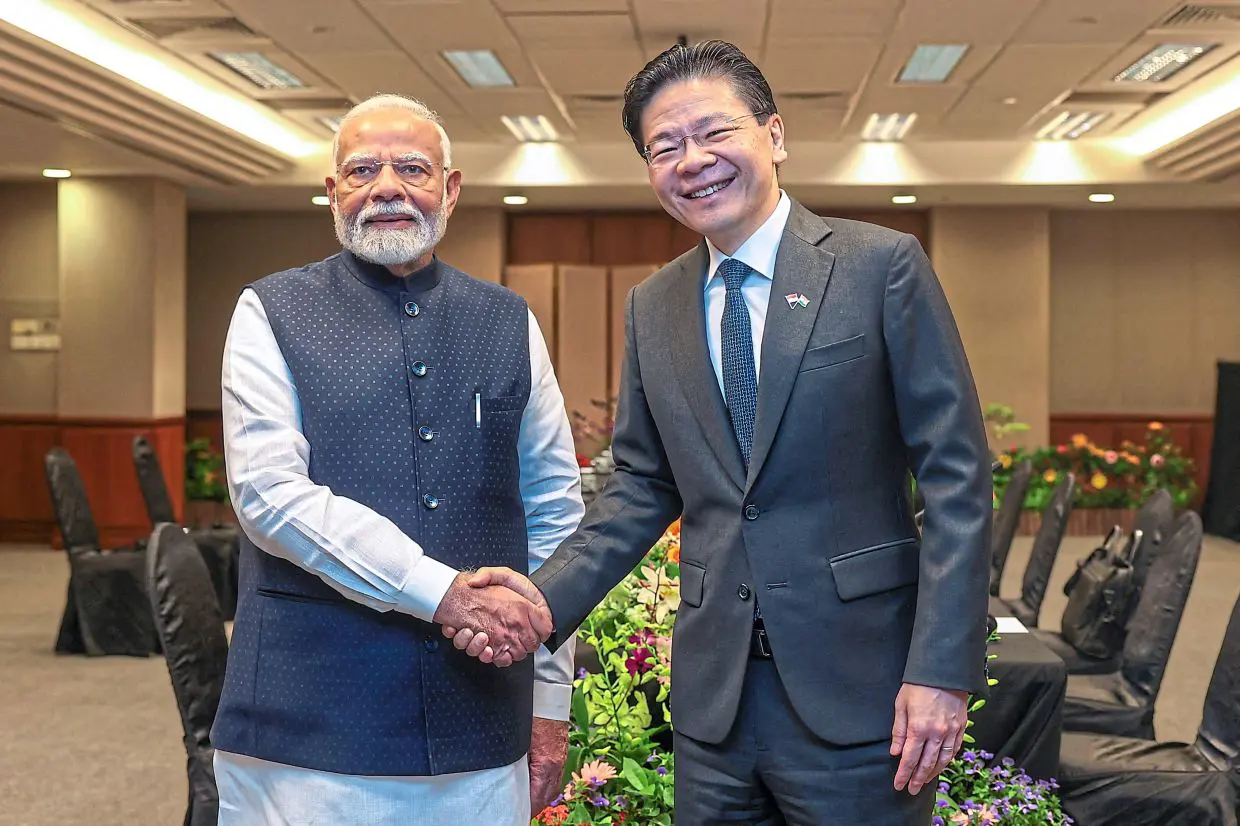India Secures Semiconductor Partnership with Singapore as PM Modi Advances Tech Vision

India’s Semiconductor Industry is Emerging, While Singapore Brings Decades of Expertise in the Sector
India and Singapore have solidified their commitment to enhancing collaboration in the semiconductor and digital technology sectors, aiming to establish a more significant presence in a global chip supply chain that is being reshaped amid escalating tensions between the United States and China. This strategic partnership was formalized during Indian Prime Minister Narendra Modi’s recent two-day visit to Singapore, where the two nations signed key agreements focused on developing talent in chip design and manufacturing. Additionally, the agreements facilitate increased Singaporean investment in India’s burgeoning tech landscape.
As part of this partnership, India and Singapore are set to collaborate more closely in several critical areas, including cybersecurity, 5G mobile networks, supercomputing, and artificial intelligence (AI). These sectors are integral to the future of technology and innovation, and the combined expertise of both nations is expected to yield substantial advancements. The Indian government emphasized that this collaboration is not just about chips but also about building a comprehensive ecosystem for technology development that can compete on a global scale.
The ongoing US-China chip war has created unique opportunities for various Asian economies, including India, Singapore, and Malaysia. As countries on both sides race to establish independent semiconductor supply chains to mitigate geopolitical risks, the global chip market is expected to reach approximately $588 billion in sales this year. This competitive environment presents a favorable landscape for collaboration, with India looking to leverage Singapore’s established semiconductor infrastructure and expertise.

While India’s semiconductor industry is still in its early stages, Singapore has a long-standing history in this field. The city-state is home to some of the largest chip manufacturing facilities in Southeast Asia, hosting major international players such as NXP Semiconductors NV and Micron Technology Inc. Singapore’s robust ecosystem includes a wealth of research and engineering talent in chip development, along with significant venture capital investments aimed at fostering startup innovation in the semiconductor space.
This collaboration underscores Prime Minister Modi’s vision of transforming India into a technology superpower. A strong semiconductor ecosystem is essential for this ambition, as it plays a critical role in supporting various technological advancements, from consumer electronics to advanced computing. During his visit, Modi engaged in discussions with Singaporean Prime Minister Lawrence Wong and other key officials, further solidifying the bilateral relationship and exploring additional areas for cooperation.
In addition to semiconductor and tech collaborations, the two nations also signed agreements focusing on health, medicine, and skills development. This holistic approach to cooperation aims to strengthen ties beyond technology, fostering a partnership that can address various challenges and opportunities in both countries. As India positions itself as a key player in the global technology arena, its partnership with Singapore could serve as a model for future collaborations with other nations in the region and beyond.





















